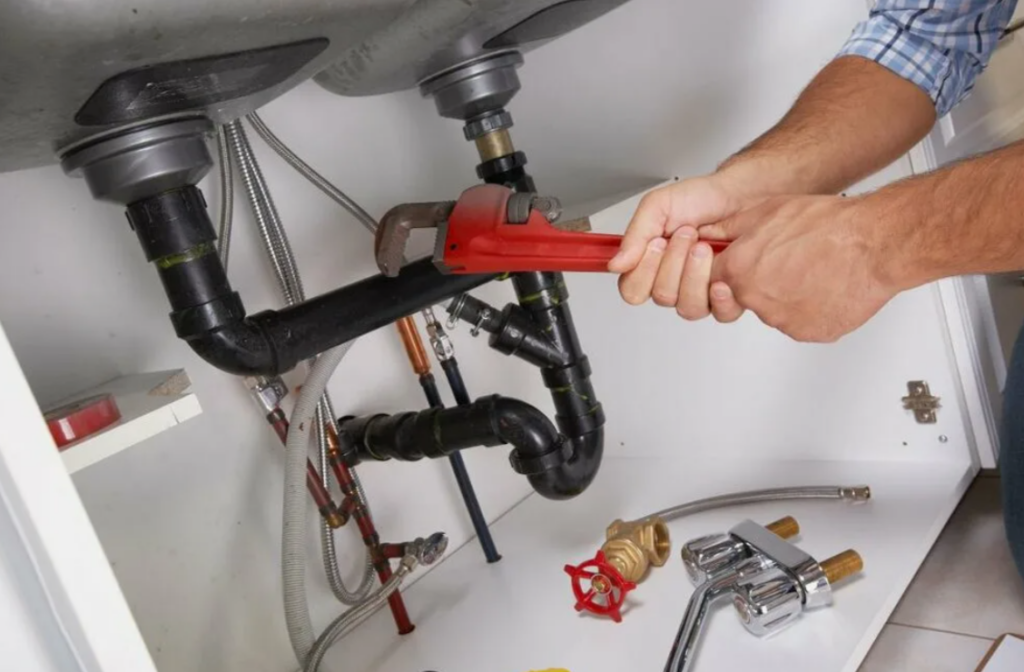Have you noticed your energy bills creeping up lately, even though your household habits haven’t changed? Or maybe your hot water doesn’t last as long as it used to? Many homeowners overlook their water heaters when searching for the cause of rising utility costs. The truth is, a simple water heater repair can often improve energy efficiency and help lower your monthly bills.
Your water heater works hard behind the scenes to provide warm showers, clean dishes, and sanitized laundry. But like any hardworking appliance, it can lose efficiency over time. In this blog, we’ll walk you through how a small fix today can save you big in the long run.
Why Efficiency Matters in Water Heaters
Energy efficiency isn’t just about saving money—it’s about getting the most out of your home’s appliances while reducing unnecessary waste. An inefficient water heater uses more energy to do the same job it used to handle easily. This leads to higher electricity or gas bills without providing any extra benefit.
Older or malfunctioning units can waste energy by heating water more often than necessary or struggling to maintain temperature. Addressing these issues with a timely water heater repair helps ensure your system runs as efficiently as possible.
Common Issues That Lower Water Heater Efficiency
Even minor problems can cause your water heater to work harder than it should. Left unchecked, these small issues lead to bigger energy waste—and higher costs. Here are some common culprits:
- Sediment Buildup: Over time, minerals from your water supply settle at the bottom of the tank, forcing your heater to work harder to heat through the debris.
- Faulty Thermostats: If the thermostat isn’t accurate, your water heater may overheat or underheat unnecessarily.
- Worn Heating Elements: Electric water heaters rely on heating elements that weaken with age and use.
- Leaky Valves or Tanks: Even a small leak reduces efficiency by forcing the system to refill and reheat more often.
Fixing these common problems with professional water heater repair can restore your unit’s performance and cut down on energy use.
How Repairs Can Lead to Lower Energy Bills
When your water heater runs efficiently, it requires less energy to do its job—plain and simple. Repairs that improve efficiency include:
- Flushing the Tank: Removing sediment buildup improves heat transfer, meaning less energy is needed.
- Replacing Faulty Parts: A broken thermostat or heating element makes your heater overwork itself. New components restore normal function.
- Sealing Leaks: Stopping leaks prevents wasted water and the unnecessary reheating cycle.
These small adjustments might seem minor, but together, they make a significant impact on how much energy your water heater uses each month.
Signs Your Water Heater May Need Repair
Not sure if your water heater is causing your rising utility bills? Here are some telltale signs that something isn’t right:
- Water Takes Too Long to Heat
- Hot Water Runs Out Quickly
- Higher Utility Bills Without Increased Usage
- Strange Noises Coming from the Tank
- Visible Leaks or Rust Around the Heater
If you notice any of these issues, it’s worth scheduling a professional water heater repair to inspect and fix the problem before it gets worse.
The Long-Term Benefits of a Simple Repair
Repairing your water heater isn’t just about the short-term win of lower bills. Over time, maintaining your appliance delivers a range of long-lasting benefits:
- Extended Lifespan: Routine care helps your water heater last longer, delaying the need for an expensive replacement.
- Consistent Performance: Enjoy reliable hot water whenever you need it.
- Peace of Mind: A well-maintained system reduces the risk of sudden breakdowns or emergency repairs.
- Environmentally Friendly: Using less energy reduces your home’s carbon footprint.
Investing in small repairs today leads to less waste, fewer headaches, and more savings down the road.
Why You Shouldn’t Delay Repairs
Delaying repairs can turn a minor problem into a major one. What starts as a simple fix may eventually lead to full system failure if ignored. By handling issues early, you avoid:
- Unexpected Breakdowns
- Costly Emergency Replacements
- Wasted Energy Over Months or Years
Routine maintenance and timely repairs are a small price to pay for the comfort and savings they deliver.
When to Consider Replacement Over Repair
Sometimes, repairs aren’t enough. If your unit is over 10-12 years old and constantly giving you trouble, it might be time to consider replacement. A new, energy-efficient model can reduce your bills even further and offer more advanced features for modern convenience.
However, if your water heater is relatively new or the issue is small, water heater repair is usually the smartest, most cost-effective choice.
Conclusion: A Small Fix Can Make a Big Difference
Don’t overlook your water heater when evaluating ways to make your home more energy-efficient. Often, a simple water heater repair is all it takes to cut costs, save energy, and enjoy reliable hot water again. Whether it’s a quick part replacement or a routine tank flush, these small steps lead to big results over time.
If you’re unsure where to start, reach out to a trusted local professional who can inspect your system and recommend the best solution.
FAQs About Water Heater Repair & Energy Efficiency
Q: How often should I have my water heater serviced?
A: It’s recommended to service your water heater once a year to maintain peak efficiency and catch small issues early.
Q: Does flushing the tank really help with energy savings?
A: Yes! Flushing removes sediment buildup, which helps your heater run more efficiently and saves on energy costs.
Q: Can a water heater repair extend the life of my unit?
A: Absolutely. Addressing minor issues prevents bigger problems, helping your system last longer.
Q: Will a new water heater save more energy than repairs?
A: If your current unit is old, replacing it with an energy-efficient model may offer better savings long-term. For newer units, repairs usually restore optimal efficiency.
Q: How do I know if my water heater is wasting energy?
A: If you notice higher bills, slower heating, or frequent problems, your heater is likely using more energy than it should.



